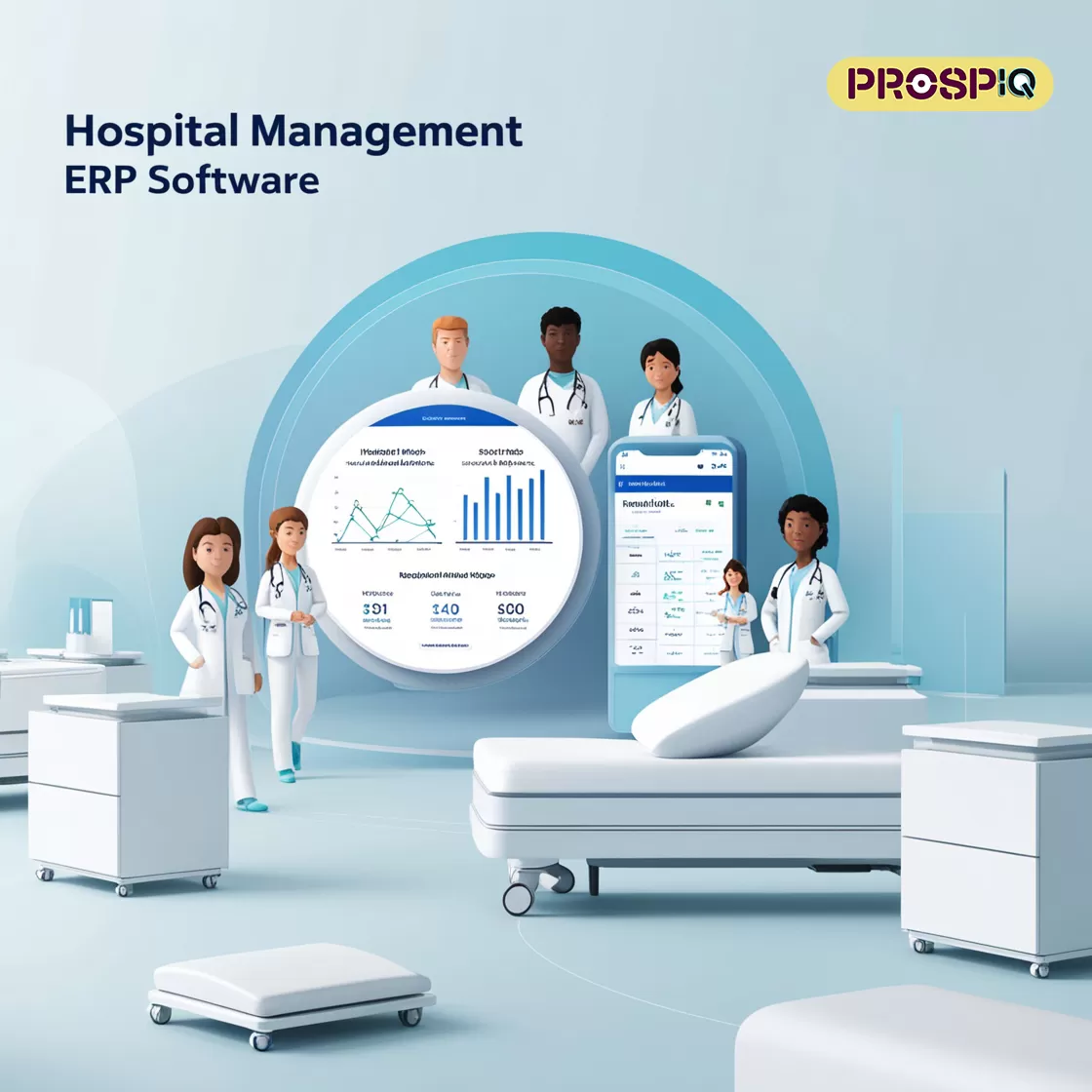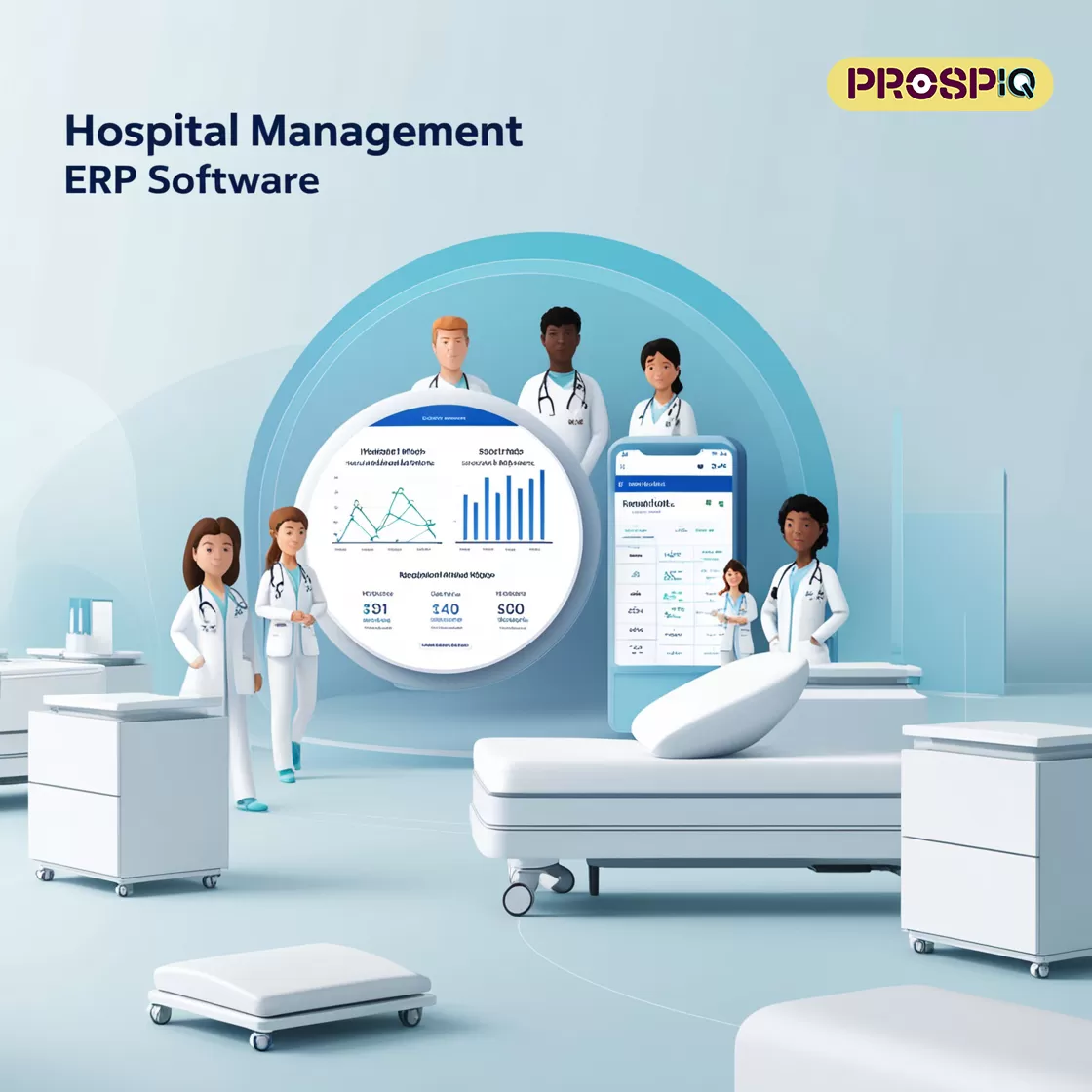
Hospital Management
Hospital Management
ERP (Enterprise Resource Planning) software is a comprehensive solution
designed to manage and streamline all aspects of hospital operations. It
integrates various functions such as patient care, administrative tasks,
finance, inventory, and human resources into one unified system. The primary
goal is to enhance operational efficiency, improve patient care, and optimize
resource usage. Here’s a breakdown of the key modules and features typically
found in Hospital Management ERP software.
1. Patient
Management
Patient Registration: Streamlines the registration process
for both inpatients and outpatients.
Appointment Scheduling: Manages doctors’
schedules and patient appointments.
Electronic Medical Records (EMR): Digital
records of patient history, diagnosis, and treatment.
Billing & Invoicing:
Automates billing, invoicing, and payment processing.
2. Doctor
and Staff Management
Doctor Scheduling: Manages shifts and schedules of medical
staff.
Employee Management: Tracks employee data, attendance, and payroll.
Task
Management: Assigns tasks to staff and monitors completion.
3.
Inventory & Supply Chain Management
Pharmacy Management: Tracks drug inventory, manages
prescriptions, and monitors expiry dates.
Procurement: Handles ordering, purchasing,
and supplier management.
Asset Management: Monitors medical equipment and
ensures timely maintenance.
4.
Financial Management
Accounting: Manages hospital accounting, including general
ledger, accounts payable, and receivable.
Budgeting: Forecasts and manages the
hospital's financial budget.
Insurance Claim Management: Automates claim filing
and tracking for insurance payments.
5. Laboratory &
Diagnostic Management
Lab Information System (LIS): Tracks lab tests, results, and
patient reports.
Radiology Management: Manages diagnostic imaging and stores
radiology reports.
6. Nursing & Ward
Management
Nursing Station: Monitors patient care, medication
administration, and nursing schedules.
7. Operational and
Administrative Management
Facility Management: Manages hospital facilities and
maintenance schedules.
Compliance and Reporting: Ensures compliance with
healthcare regulations and generates required reports.
Security: Manages access
controls, ensuring data privacy and security.
8.
Communication and Collaboration
Internal Communication: Provides messaging and communication
tools for staff collaboration.
Patient Communication: Enables SMS or email
notifications for appointment reminders and health updates.
9.
Analytics and Reporting
Data Analytics: Provides dashboards and insights on patient
care, financials, and operations.Custom Reports: Generates customized reports
based on hospital performance metrics.
Management ERP Software,
Improved
Efficiency: Automation of routine tasks leads to faster operations and fewer
manual errors.
Better Patient Care: Centralized information helps doctors and
staff provide timely and accurate care.Cost Reduction: By optimizing inventory,
staff scheduling, and resource allocation, hospitals can reduce waste and save
money.Compliance and Security: Ensures the hospital meets regulatory standards
and protects sensitive patient data.Leading Hospital Management ERP Software
SolutionsMeditech: Known for its comprehensive healthcare solutions, including
EMRs and practice management.Epic Systems: Offers full-scale hospital
management, specializing in EMR and patient management.Cerner: Focuses on
improving the patient experience and healthcare workflows through technology.SAP
for Healthcare: A robust ERP for large hospital networks offering finance,
supply chain, and HR management.Odoo Healthcare: An open-source ERP solution
that can be customized for hospital management.When selecting a Hospital
Management ERP system, hospitals should consider factors like scalability, ease
of use, customization options, compliance with healthcare standards (such as
HIPAA), and vendor support.

Hospital Management
Hospital Management ERP (Enterprise Resource Planning) software is a comprehensive solution designed to manage and streamline all aspects of hospital operations. It integrates various functions such as patient care, administrative tasks, finance, inventory, and human resources into one unified system. The primary goal is to enhance operational efficiency, improve patient care, and optimize resource usage. Here’s a breakdown of the key modules and features typically found in Hospital Management ERP software.